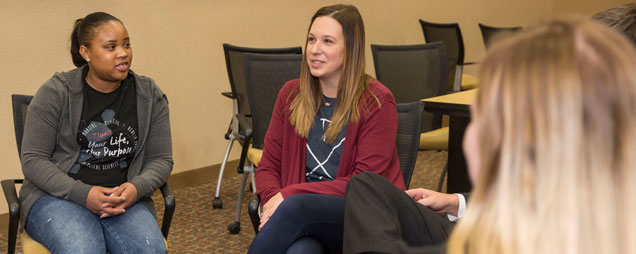Master of Science in Addiction Counseling: The Profession

Addiction counselors provide and coordinate services for people with a range of substance use disorders such as alcohol or drug use, or other behavioral addiction and health issues. They provide treatment and support to help the client recover from addiction or modify problem behaviors. These professionals work with clients individually and in group sessions. They teach clients how to cope with stress and life’s problems in ways that help them recover. Many addiction counselors work in facilities that involve interprofessional relationships with other healthcare providers.
Addiction counselors help clients improve their personal relationships and find ways to discuss their addiction or other problems with family and friends. Furthermore, they help clients rebuild professional relationships and, if necessary, reestablish their career. This is done through a range of activities, including: appraisal, individual and group counseling, treatment planning, referral and coordination with other service providers and assisting clients to cope effectively with their environment and function as independently as possible.
The field of addiction counseling is growing rapidly. Increased access to health insurance has created a shortage of qualified addiction counselors. There is a large demand for counselors to work in prevention and treatment service delivery systems.
